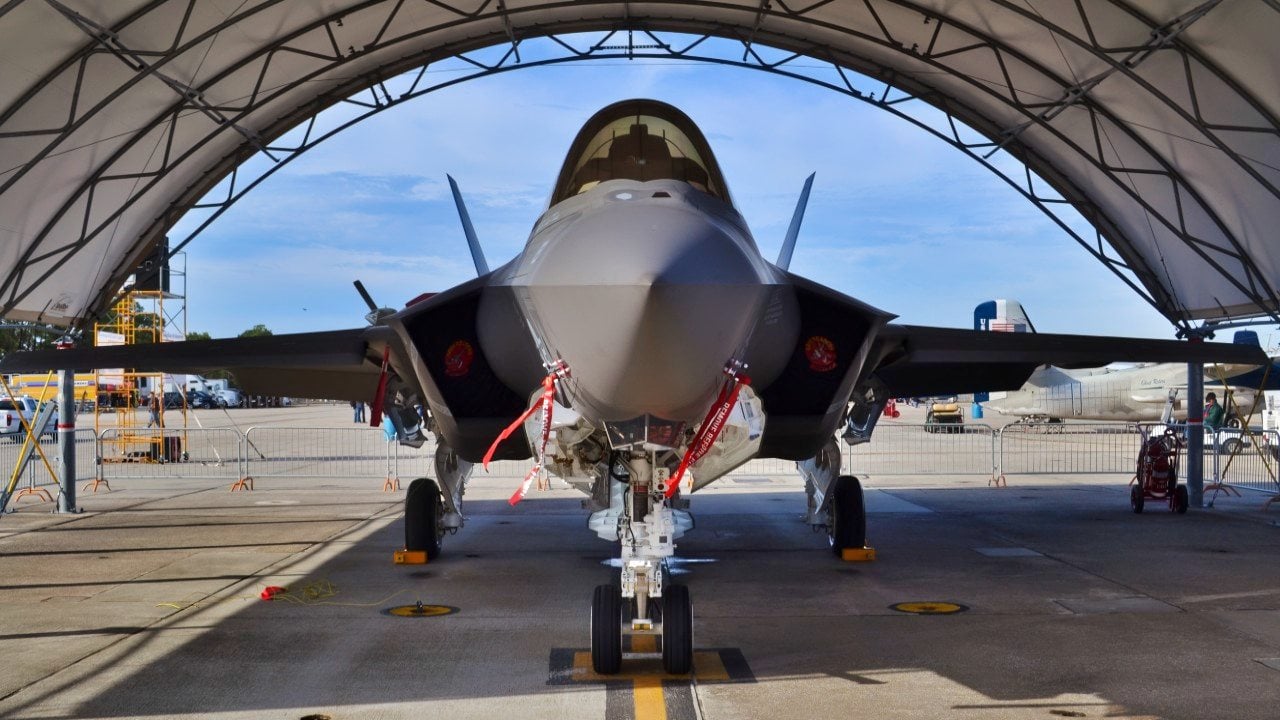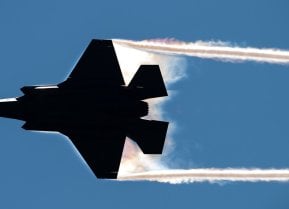China Could Invade Taiwan This Fall
Chinese President Xi Jinping accused the U.S. of provoking China to invade Taiwan, which he vowed to avoid. Despite previous hints of military action, China hasn't attacked Taiwan. Analysts suggest China might strike this fall.
Summary and Key Points: Chinese President Xi Jinping accused the U.S. of provoking China to invade Taiwan, which he vowed to avoid. Despite previous hints of military action, China hasn't attacked Taiwan. Analysts suggest China might strike this fall. The global shift from U.S. dominance to a tripolar world, with China and Russia, influences this tension.

-Russia's conflict in Ukraine strengthened China-Russia ties. Meanwhile, U.S. political divisions weaken its stance. Xi aims for Taiwan's reunification by 2049.
-A favorable weather window in October might see Chinese military action. Options include a sudden strike or gradual blockade. Xi's opportunity aligns with perceived U.S. vulnerability.
Will China Strike Taiwan This Fall? Analysts Weigh In
“The US [is] trying to trick China into invading Taiwan,” Chinese President Xi Jinping accused the Americans of doing.
Not to worry, though. Xi assured the whole world that he, as dictator of one of the most vicious regimes in the world, “wouldn’t take the bait.”
Well, thank goodness for the restraint of autocrats.
Methinks the Tyrant Doth Protesteth Too Much.
According to private intelligence firm Bellingcat, an FSB defector in December 2021 revealed that Xi admitted to his Russian counterpart, President Vladimir Putin, that China was contemplating taking military action of some kind against Taiwan in September 2023.
Obviously, that never came about. But for the last year several analysts – including legendary private military contractor and former Navy SEAL Erik Prince – have asserted that China will try to clip Taiwan’s democratic wings at some point this year (likely in the fall).
History is made when man merges with overwhelming trends.
The world is currently experiencing a shift away from the United States as the global hegemon, into a tripolar world in which China is ascendant (at least for now) and the United States is in relative decline.
The Russians, meanwhile, are serving as what early 20th century geopolitical theorist Sir Halford Mackinder referred to as the geographical pivot around which Eurasian affairs hinge.
A Comedy of Geostrategic Errors
Sadly for the West, their one opportunity to make Russia into a hinge that favored America and Europe at the end of the Cold War has fully evaporated in the killing fields of Ukraine, where the Western powers abandoned any semblance of grand strategy in favor of petty ideological warfare that traded tactical gains for strategic benefits. Now China has a willing and able junior partner in Russia.
Back in the United States, the Americans are divided unlike at any other time except for the run-up to the American Civil War. What’s more, they are torn between two political leaders, Joe Biden and Donald Trump, who are highly unpopular and are only adding to the political division. In the case of America’s current leader, President Joe Biden, the world is presented with an aging, sclerotic man who, unfortunately, is having his competence questioned due to his age and the way that he presents while appearing in public.
Plus, China, which is ever mindful of the comprehensive national power (CNP) of its rivals, has come to believe that America’s CNP score is low and getting lower still. It has been a long-term goal of the People’s Republic of China to capture Taiwan and integrate it into China’s growing co-prosperity sphere.
Moving Toward Xi’s “China Dream”
What’s more, President Xi has declared reunification with Taiwan to be a key element of the China Dream 2049 project that he announced when he first assumed power in 2012. This is the plan to make China into the world’s pre-eminent power by 2049, the 100-year anniversary of the founding of the People’s Republic.
Xi may never get a better opportunity to fundamentally reorder the geopolitical scene in the Indo-Pacific than the one that is open between now and U.S. elections in November.
Of course, there are practical considerations. Namely, the Chinese have to attempt a strike on Taiwan during a favorable weather window.
The best time to cross the 100-mile-wide Taiwan Strait en masse is either in April or October.
April has passed. So, it looks like October.
But September might be open for Chinese warships to wreak havoc on Taiwan’s outlying Kinmen, Matsu, and Penghu Islands, which they will have to cleave away from Taiwan before moving forward.
Given that the weather window is so tight, if Beijing decided to go for Taiwan, whether with a blockade or a full-blown invasion, they would have to move quickly.That weather window would close within a month of hostilities initiating.
Most Western observers believe that China will seek a bolt-from-the-blue strike on Taiwan to keep the West off-guard and to gain advantages over the Taiwanese via shock.
This is a fair supposition.
Blockade or Bolt-from-the-Blue?
Others, however, suggest that China might go for a more prolonged salami-slice approach, as Russia has done in places like Georgia and Ukraine. The Chinese might take more easily acquired territory, such as those outlying islands, and then slowly isolate Taiwan and blockade the island until it collapses.
Still, a bolt-from-the-blue strike would be devastating.
And because it would catch the world by surprise – regardless of whether Western intelligence services detected a buildup of troops and equipment on the Chinese mainland that would presage an invasion of Taiwan – China would likely be able to achieve their objectives of decapitating Taiwan’s leadership and landing large numbers of forces on the island.
Of course, in such a scenario, China’s forces would have to disable American cyber infrastructure. China would launch a counterspace attack against American and allied satellite constellations, and the Chinese would have to disrupt the electromagnetic field to leave the Americans deaf, dumb, and blind during any sudden Chinese attack on Taiwan.
Then there’s the issue that China would have to at least believably threaten the safety of U.S. aircraft carriers with their anti-access/area-denial systems, as well as hold known U.S. Air Force airbases in the region hostage with China’s long-range missiles. All to avoid having to directly engage the U.S. military in a fight over Taiwan.

Xi’s Great Opportunity
Regardless of whether Xi settles for a blockade and slow strangulation of Taiwan’s political autonomy, or he opts for a sudden strike on Taiwan, the most pristine moment for doing so is this year.
He will never have another opportunity of such severe American weakness and distraction.
About the Author
Brandon J. Weichert, a National Interest national security analyst, is a former Congressional staffer and geopolitical analyst who is a contributor at The Washington Times, the Asia Times, and The-Pipeline. He is the author of Winning Space: How America Remains a Superpower, Biohacked: China’s Race to Control Life, and The Shadow War: Iran’s Quest for Supremacy. His next book, A Disaster of Our Own Making: How the West Lost Ukraine, is due October 22 from Encounter Books. Weichert can be followed via Twitter @WeTheBrandon.
All images are Creative Commons.
From The Vault


